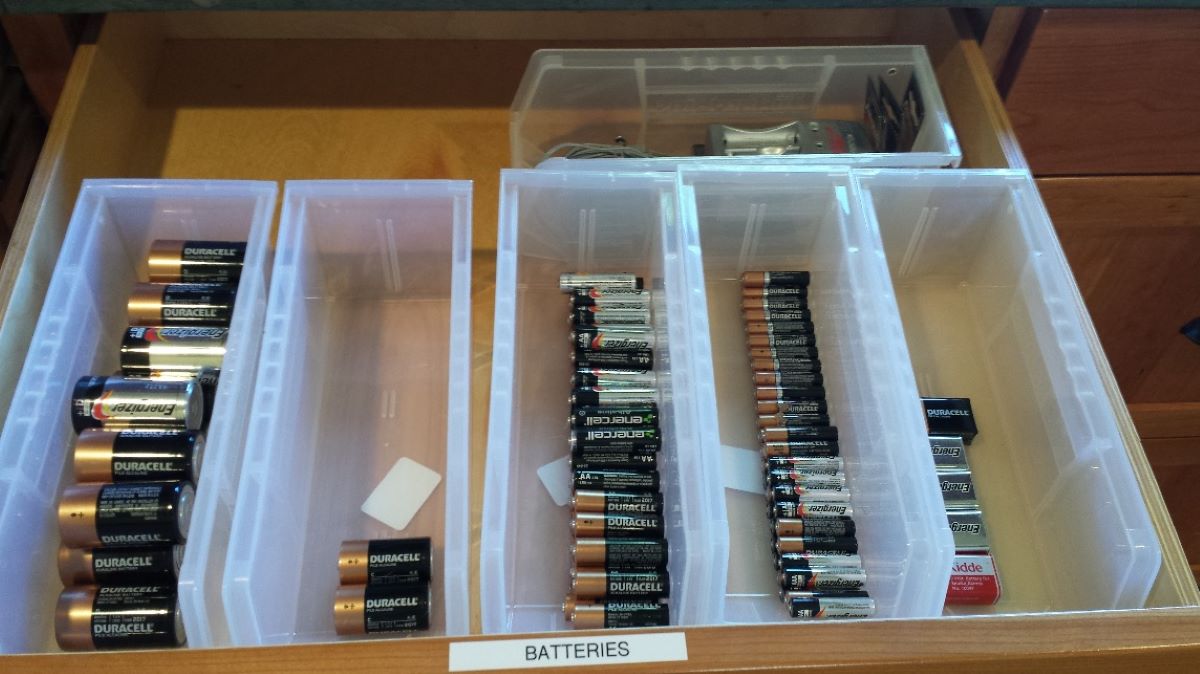

Articles
How To Store Batteries Safely
Modified: January 9, 2024
Learn the best way to store batteries safely and prolong their lifespan. Follow these essential tips and guidelines. Read more in our informative articles.
(Many of the links in this article redirect to a specific reviewed product. Your purchase of these products through affiliate links helps to generate commission for Storables.com, at no extra cost. Learn more)
Introduction
Welcome to this comprehensive guide on how to store batteries safely. Whether you use batteries for your electronic devices, household appliances, or any other equipment, proper storage is crucial to maintain their effectiveness and prolong their lifespan. Battery storage not only ensures the safety of your home but also helps you save money by preventing premature battery failure.
Improper storage of batteries can lead to leakage, corrosion, and even dangerous short-circuits, which can cause harm to you and your belongings. Therefore, it is essential to have a good understanding of the different types of batteries and the specific storage requirements for each.
In this article, we will provide you with general guidelines for storing batteries, as well as detailed instructions for storing alkaline batteries, lithium-ion batteries, rechargeable batteries, button cell batteries, lead-acid batteries, and NiMH batteries. By following these guidelines, you can ensure the safety of your batteries and prolong their lifespan, saving you time and money in the long run.
So, let’s dive in and learn how to store batteries safely!
Key Takeaways:
- Proper battery storage is crucial for maintaining effectiveness, safety, and longevity. Follow specific guidelines for each battery type to prevent leakage, corrosion, and hazards, ultimately saving money and protecting your home.
- By storing batteries in a cool, dry environment and avoiding extreme temperatures, you can extend their lifespan, save money, and protect your home and environment from potential hazards. Always handle and dispose of batteries with caution.
Read more: How To Safely Store Batteries
Importance of Battery Storage
Proper battery storage is of utmost importance as it not only helps maintain the efficiency and reliability of the batteries but also ensures the safety of your home and surroundings. Here’s why battery storage matters:
1. Prevents leakage: Storing batteries in a correct and upright position prevents them from leaking harmful chemicals. Battery leakage not only damages the device or equipment but can also pose hazards to your health and the environment.
2. Avoids corrosion: Battery corrosion occurs when the electrolyte inside the battery reacts with the metal terminals. By storing batteries in a dry and cool environment, you can minimize the risk of corrosion and ensure that batteries maintain a strong connection with the devices they power.
3. Prevents short-circuits: Incorrectly stored batteries, especially those with exposed terminals, can come into contact with metal objects or each other, leading to a short-circuit. Short-circuits not only damage the batteries but can also result in fire hazards.
4. Maximizes lifespan: Proper storage conditions can help extend the lifespan of batteries. Factors such as temperature, humidity, and exposure to sunlight can affect the overall performance of batteries, so ensuring the right storage conditions can help them last longer.
5. Saves money: When batteries are stored correctly, they remain functional for longer periods of time. This means you won’t have to frequently replace them, saving you money in the long run.
6. Promotes safety: By storing batteries safely, you reduce the risk of accidents and mishaps. This is particularly important if you have children or pets at home who may accidentally come into contact with batteries.
Regardless of the type of battery you are using – alkaline, lithium-ion, rechargeable, or others, proper storage practices are essential to maintain their performance, safety, and longevity. The next section will provide you with general guidelines to follow when storing batteries, followed by specific instructions for different types of batteries.
General Guidelines for Storing Batteries
When it comes to storing batteries, there are some basic guidelines that apply to all types. By following these general principles, you can ensure the safe storage of batteries and maintain their effectiveness:
1. Temperature and Humidity: Store batteries in a cool, dry place. Extreme temperatures, whether hot or cold, can reduce battery performance and lead to leakage or other issues. Avoid storing batteries in areas with high humidity, as moisture can cause corrosion and damage.
2. Avoid Extreme Conditions: Keep batteries away from direct sunlight, as heat and UV rays can degrade their performance. Additionally, avoid exposing batteries to freezing temperatures, as it can negatively impact their chemistry.
3. Separate Batteries: To prevent accidental short-circuits, store batteries in separate compartments or containers. If loose batteries come into contact with each other, they may discharge and cause damage. Consider using individual bags, cases, or separators designed for battery storage.
4. Remove from Devices: Before storing batteries, remove them from devices that are not in use. This reduces the risk of damage from power drainage or any potential leakage that can harm the device.
5. Battery Tester: Consider investing in a battery tester or using a multimeter to check the voltage of batteries before storage. Discard any batteries showing signs of low voltage or damage, as they may not perform well or could leak over time.
6. Label and Date: If you have several batteries of the same type or different types, label them appropriately and mark the date of purchase or first use. This allows you to keep track of their age and helps ensure that older batteries are used first.
7. Avoid Magnetic Fields: Keep batteries away from strong magnetic fields, as they can interfere with their performance and potentially affect their chemistry.
8. Proper Disposal: When batteries reach the end of their life cycle or no longer function, dispose of them properly according to local regulations. Many communities have designated recycling centers or programs for the safe disposal of batteries.
By following these general guidelines, you can create a safe and organized storage system for your batteries, minimizing the risk of accidents or damage. However, it is important to note that different types of batteries have specific storage recommendations. In the following sections, we will explore the storage requirements for different battery types, including alkaline, lithium-ion, rechargeable, button cell, lead-acid, and NiMH batteries.
Storing Alkaline Batteries
Alkaline batteries are one of the most commonly used types of batteries in household devices. To ensure their safe storage and optimal performance, consider the following guidelines:
1. Store at Room Temperature: Alkaline batteries perform best when stored at room temperature, typically between 20 to 25 degrees Celsius (68 to 77 degrees Fahrenheit). Avoid exposing them to extreme temperatures, as it can impact their performance and lifespan.
2. Separate and Isolate: Store alkaline batteries in their original packaging or individual containers to prevent them from coming into contact with other batteries or metal objects. This reduces the risk of accidental short-circuits and prevents corrosion.
3. Keep Dry: Although alkaline batteries are generally less prone to leakage than other types, it is still important to store them in a dry environment. Moisture can cause corrosion, affecting battery performance and potentially leading to leakage.
4. Avoid Freezing Temperatures: Alkaline batteries can be negatively affected by freezing temperatures. Ensure they are not exposed to extreme cold, as this can lead to reduced capacity and potential leakage.
5. Check Expiration Dates: Alkaline batteries typically have a long shelf life, but it’s essential to check the expiration date before use and storage. Dispose of expired batteries and avoid storing them, as they may not perform optimally.
6. Proper Disposal: If alkaline batteries begin to leak or show signs of damage, dispose of them properly according to local regulations. Avoid throwing them in regular trash bins, as they can be harmful to the environment.
By following these guidelines, you can store alkaline batteries safely and maintain their performance. Remember to always handle and store batteries with care, and in case of any doubt or concern, consult the manufacturer’s recommendations.
Storing Lithium-Ion Batteries
Lithium-ion batteries are widely used in smartphones, laptops, power tools, and other portable electronic devices. These batteries have specific storage requirements to ensure their safety and longevity. Here’s how to store lithium-ion batteries properly:
1. Charge Level: Lithium-ion batteries should be stored with a charge level between 30% and 50% of their capacity. Storing them at full charge or completely discharged can lead to capacity loss or potential damage over time.
2. Cool and Dry Environment: Store lithium-ion batteries in a cool, dry place, ideally between 15 to 25 degrees Celsius (59 to 77 degrees Fahrenheit). Avoid exposing them to excessive heat or cold, as extreme temperatures can impact their performance and lifespan.
3. Avoid Extreme Conditions: Keep lithium-ion batteries away from direct sunlight, heat sources, and freezing temperatures. High temperatures can cause the battery to degrade or even catch fire, while freezing temperatures can damage the chemistry of the battery.
4. Separate Storage: If storing lithium-ion batteries outside of devices, ensure they are placed individually in containers or sealed bags to prevent potential short-circuits caused by contact with metal objects or other batteries.
5. Avoid Compression or Pressure: Do not store lithium-ion batteries in a compressed or pressurized environment. Avoid putting excessive pressure on the batteries or subjecting them to physical stress, as it can cause damage and affect performance.
6. Protect Terminals: To prevent accidental short-circuits, ensure that the battery terminals are protected and covered. You can use tape or plastic caps to cover the terminals before storage.
7. Regular Inspection: Periodically inspect lithium-ion batteries for any signs of damage, leakage, or swelling. If any abnormalities are detected, discontinue use and replace the battery.
8. Proper Disposal: When lithium-ion batteries reach the end of their life cycle or are damaged beyond repair, dispose of them according to local regulations. Many electronics stores or recycling centers provide battery recycling programs.
By following these guidelines, you can store lithium-ion batteries safely and help maintain their performance and lifespan. Always refer to the manufacturer’s recommendations for specific instructions on storing and handling lithium-ion batteries.
Store batteries in a cool, dry place at room temperature. Avoid storing them in extreme temperatures or direct sunlight, as this can reduce their performance and lifespan.
Read more: How To Store Batteries Safely At Home
Storing Rechargeable Batteries
Rechargeable batteries, such as nickel-metal hydride (NiMH) and lithium-ion polymer (LiPo) batteries, are commonly found in digital cameras, remote controls, and other electronic devices. To ensure their longevity and safe storage, consider the following guidelines:
1. Charge Level: Before storing rechargeable batteries, ensure they are partially charged, between 40% and 50% of their capacity. Storing batteries in a fully discharged state can lead to capacity loss, while storing them fully charged can cause stress on the battery cells.
2. Cool and Dry Environment: Store rechargeable batteries in a cool and dry place, ideally between 15 to 25 degrees Celsius (59 to 77 degrees Fahrenheit). High temperatures can decrease the battery’s performance and lifespan, while excessive moisture can lead to corrosion or leakage.
3. Avoid Extreme Conditions: Protect rechargeable batteries from extreme temperatures, both hot and cold. Avoid exposing them to direct sunlight or storing them in areas with high humidity, as it can damage the battery chemistry.
4. Use Original Packaging: If possible, store rechargeable batteries in their original packaging or dedicated battery cases specifically designed for safe storage. This protects batteries from accidental short-circuits caused by contact with other objects or batteries.
5. Protection Circuit Modules (PCMs): Some rechargeable batteries, such as LiPo batteries, come with built-in Protection Circuit Modules (PCMs) that help prevent overcharging and over-discharging. If possible, store batteries equipped with PCMs to enhance safety.
6. Regular Charging: If rechargeable batteries are not used for an extended period, consider charging them every three to six months to help maintain their capacity. Avoid overcharging or leaving them plugged in for excessively long periods.
7. Inspect for Damage: Before storage, check rechargeable batteries for any signs of damage, such as leaks, bulging, or corrosion. If you notice any abnormalities, do not use or store the batteries and dispose of them properly following local regulations.
8. Proper Disposal: When rechargeable batteries reach the end of their life cycle or become damaged, recycle them according to local regulations. Many recycling centers or electronics stores accept rechargeable batteries for safe disposal.
By following these guidelines, you can maintain the performance and extend the lifespan of your rechargeable batteries. Remember to always handle and store them with care, and if you are uncertain about the specific storage requirements of a particular rechargeable battery, consult the manufacturer’s recommendations.
Storing Button Cell Batteries
Button cell batteries, also known as coin cell batteries, are commonly used in watches, calculators, key fobs, and other small electronic devices. Despite their small size, proper storage is important to ensure their safety and longevity. Here’s how to store button cell batteries effectively:
1. Keep in Original Packaging: Whenever possible, store button cell batteries in their original blister packs or packaging. These packs are designed to provide insulation and protect the terminals from accidental short-circuits.
2. Dry Environment: Store button cell batteries in a dry environment to prevent moisture and humidity from causing corrosion or unwanted reactions. Moisture can lead to battery leakage or reduced performance.
3. Avoid Mixing Different Batteries: Do not mix different types or sizes of button cell batteries in the same storage container. Mixing batteries can increase the risk of unwanted interactions and potential short-circuits.
4. Store in a Secure Container: Use a small plastic storage container or dedicated battery organizer to store button cell batteries. This will keep them separate from other objects and reduce the risk of accidental contact that may lead to short-circuits.
5. Cool and Dark Location: Store button cell batteries in a cool, dark place, away from direct sunlight or extreme temperatures. Heat can accelerate the self-discharge rate of the batteries, while cold temperatures can temporarily reduce their capacity. Ideally, store them at room temperature.
6. Regular Inspection: Periodically inspect button cell batteries for any signs of damage, such as leaks, corrosion, or swelling. If you notice any abnormalities, discard the batteries and replace them with new ones.
7. Proper Disposal: When button cell batteries reach the end of their life expectancy or show signs of damage, dispose of them responsibly. Many recycling centers or electronic stores provide specialized disposal services for button cell batteries.
8. Keep Away from Children and Pets: Button cell batteries are small and can be easily swallowed by children or pets. Store them in a secure location out of reach, and always keep a close eye on young children when handling these batteries.
By following these guidelines, you can ensure the safe storage of button cell batteries and prolong their lifespan. Remember to handle these small batteries with caution and dispose of them properly when no longer usable.
Storing Lead-Acid Batteries
Lead-acid batteries are commonly used in automobiles, boats, and renewable energy systems. These batteries require careful storage to maintain their performance and ensure safety. Here are some guidelines for storing lead-acid batteries:
1. Ventilation: Lead-acid batteries emit hydrogen gas during charging and discharging. Always store these batteries in a well-ventilated area to prevent the buildup of flammable gases. Avoid storing them near open flames or sources of ignition.
2. Charge Level: Before storing lead-acid batteries, ensure they are fully charged. A fully charged battery is less likely to freeze at low temperatures and is better equipped to withstand the self-discharge rate over time.
3. Clean and Dry: Before storage, clean the battery terminals and surrounding area with a mixture of baking soda and water to remove any corrosion or dirt. Ensure the battery is completely dry before storing it to prevent moisture-related damage.
4. Temperature: Lead-acid batteries are sensitive to temperature extremes. Ideally, store them in a cool and dry place, with temperatures ranging between 10 and 25 degrees Celsius (50 to 77 degrees Fahrenheit). Avoid exposing them to direct sunlight or freezing temperatures.
5. Keep Charged: If storing lead-acid batteries for an extended period, it is recommended to periodically charge them to prevent sulfation, a common issue that affects battery performance and lifespan. Follow the manufacturer’s recommendations for charging intervals.
6. Protect from Freezing: Lead-acid batteries can freeze in extremely cold temperatures. If storing them in a location where freezing is possible, use a battery blanket or insulation to provide additional protection. Alternatively, you can remove the battery from the vehicle or equipment and store it indoors in a temperature-controlled area.
7. Safety Precautions: When handling lead-acid batteries, always wear protective gloves and goggles. Avoid touching the battery terminals with bare hands and keep them away from metal objects that may cause a short-circuit.
8. Regular Inspection: Periodically inspect lead-acid batteries for any signs of damage, leakage, or corrosion. If any abnormalities are detected, dispose of the battery according to local regulations and replace it with a new one.
9. Proper Disposal: Properly dispose of lead-acid batteries once they reach the end of their life cycle. These batteries contain hazardous materials and should be taken to a recycling facility or a designated collection point.
By following these guidelines, you can safely store lead-acid batteries and ensure their longevity. It’s important to remember that lead-acid batteries require extra precautions due to their chemical composition, so handle them with care and always follow the manufacturer’s recommendations for storage and maintenance.
Storing NiMH Batteries
Nickel-Metal Hydride (NiMH) batteries are commonly used in a variety of devices, including cameras, toys, and portable electronics. Proper storage of NiMH batteries is crucial to maintain their performance and prolong their lifespan. Here are some guidelines for storing NiMH batteries:
1. Charge Level: NiMH batteries should be stored with a partial charge, ideally between 40% and 70% of their capacity. Storing them with a full charge or in a completely discharged state can lead to capacity loss and decrease their overall lifespan.
2. Cool and Dry Environment: Store NiMH batteries in a cool and dry place, ideally between 15 to 25 degrees Celsius (59 to 77 degrees Fahrenheit). Avoid exposure to extreme temperatures, as high temperatures can cause self-discharge, and low temperatures can temporarily reduce the battery’s performance.
3. Protection from Moisture: NiMH batteries are susceptible to moisture and humidity. Store them in a container, bag, or battery organizer that provides protection against moisture to prevent corrosion and other damage.
4. Avoid Rapid Discharge: Do not store NiMH batteries in devices that continuously draw power. Rapid discharge can lead to capacity loss and reduce the overall performance of the batteries. Remove batteries from devices that are not in use for an extended period.
5. Avoid Mixing Battery Types: Do not mix different types or brands of NiMH batteries during storage. Mixing batteries with varying capacities or chemistries can lead to imbalances and inconsistent performance.
6. Regular Use and Rotations: Utilize your NiMH batteries regularly to maintain their performance. If you have multiple NiMH batteries, rotate their use to ensure equal wear and capacity retention among all the batteries.
7. Inspection and Maintenance: Periodically inspect NiMH batteries for any signs of leakage, corrosion, or damage. If any abnormalities are noticed, do not use or store the batteries and dispose of them properly according to local regulations.
8. Proper Disposal: When NiMH batteries reach the end of their life cycle or are no longer functional, recycle them through designated recycling programs or facilities. NiMH batteries should not be thrown away in regular trash, as they contain materials that can be harmful to the environment.
By following these guidelines for storing NiMH batteries, you can maintain their performance, prolong their lifespan, and ensure their safe use. Additionally, always refer to the manufacturer’s recommendations for specific instructions on storage and handling of NiMH batteries.
Read more: How To Store Lithium Batteries Safely
Conclusion
In conclusion, proper battery storage is essential for maintaining their effectiveness, safety, and longevity. Whether you are handling alkaline batteries, lithium-ion batteries, rechargeable batteries, button cell batteries, lead-acid batteries, or NiMH batteries, following the recommended storage guidelines can help you maximize their performance and prevent potential hazards.
By storing batteries in a cool, dry environment at room temperature and avoiding exposure to extreme temperatures, you can prevent leakage, corrosion, and other damage. Separating batteries and protecting their terminals reduces the risk of accidental short-circuits, while proper labeling and dating allow you to keep track of their age and usage.
It is crucial to regularly inspect batteries for signs of damage or deterioration and dispose of expired or damaged batteries responsibly. Different battery types have unique storage requirements, so make sure to understand the specific instructions provided by the manufacturer.
By practicing proper battery storage techniques, you can save money by extending the lifespan of your batteries and protect your home and environment from potential hazards. Remember to store batteries out of the reach of children and pets, and always use caution when handling and disposing of batteries.
So, whether you are storing batteries for your electronic devices, household appliances, or any other equipment, make sure to prioritize their safety and performance by following the guidelines outlined in this article. By doing so, you can ensure that your batteries are always ready to power your devices when you need them.
Frequently Asked Questions about How To Store Batteries Safely
Was this page helpful?
At Storables.com, we guarantee accurate and reliable information. Our content, validated by Expert Board Contributors, is crafted following stringent Editorial Policies. We're committed to providing you with well-researched, expert-backed insights for all your informational needs.
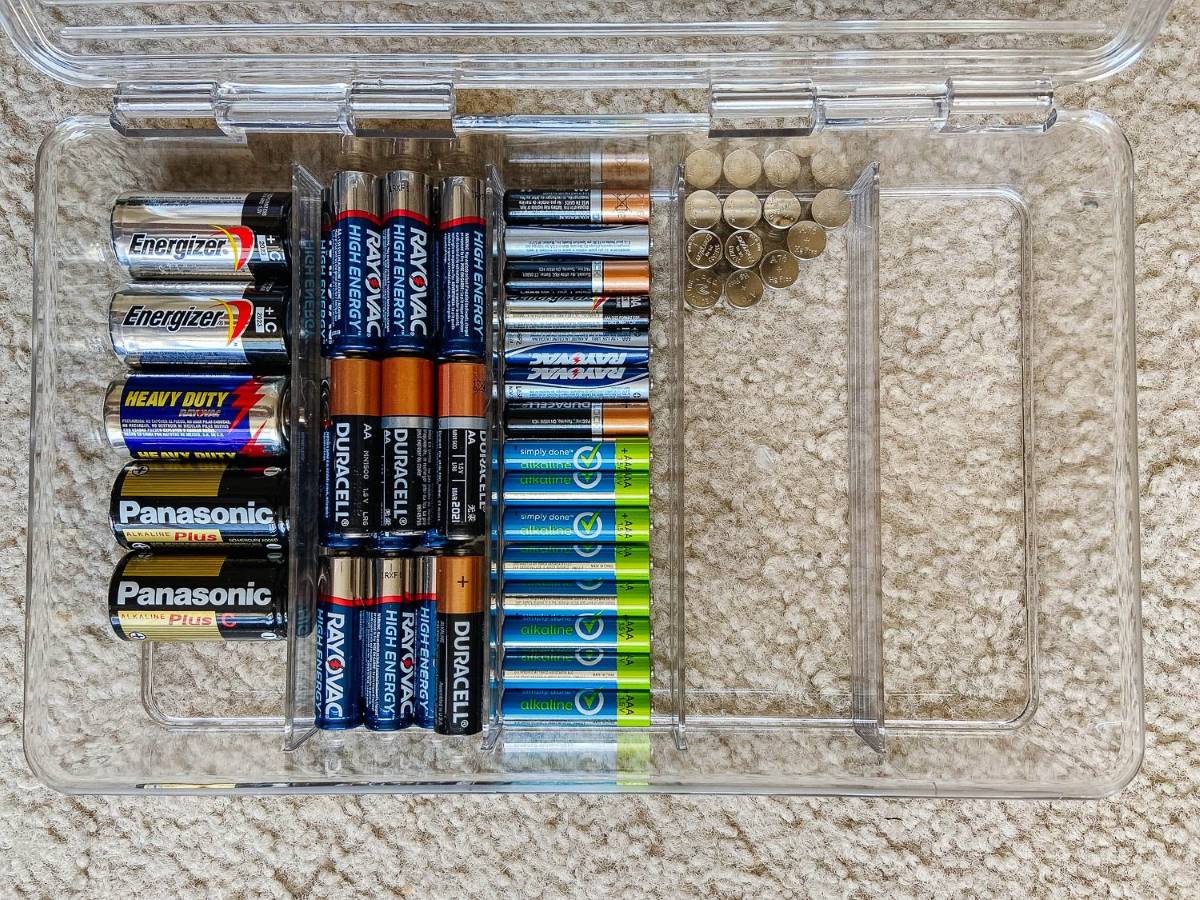
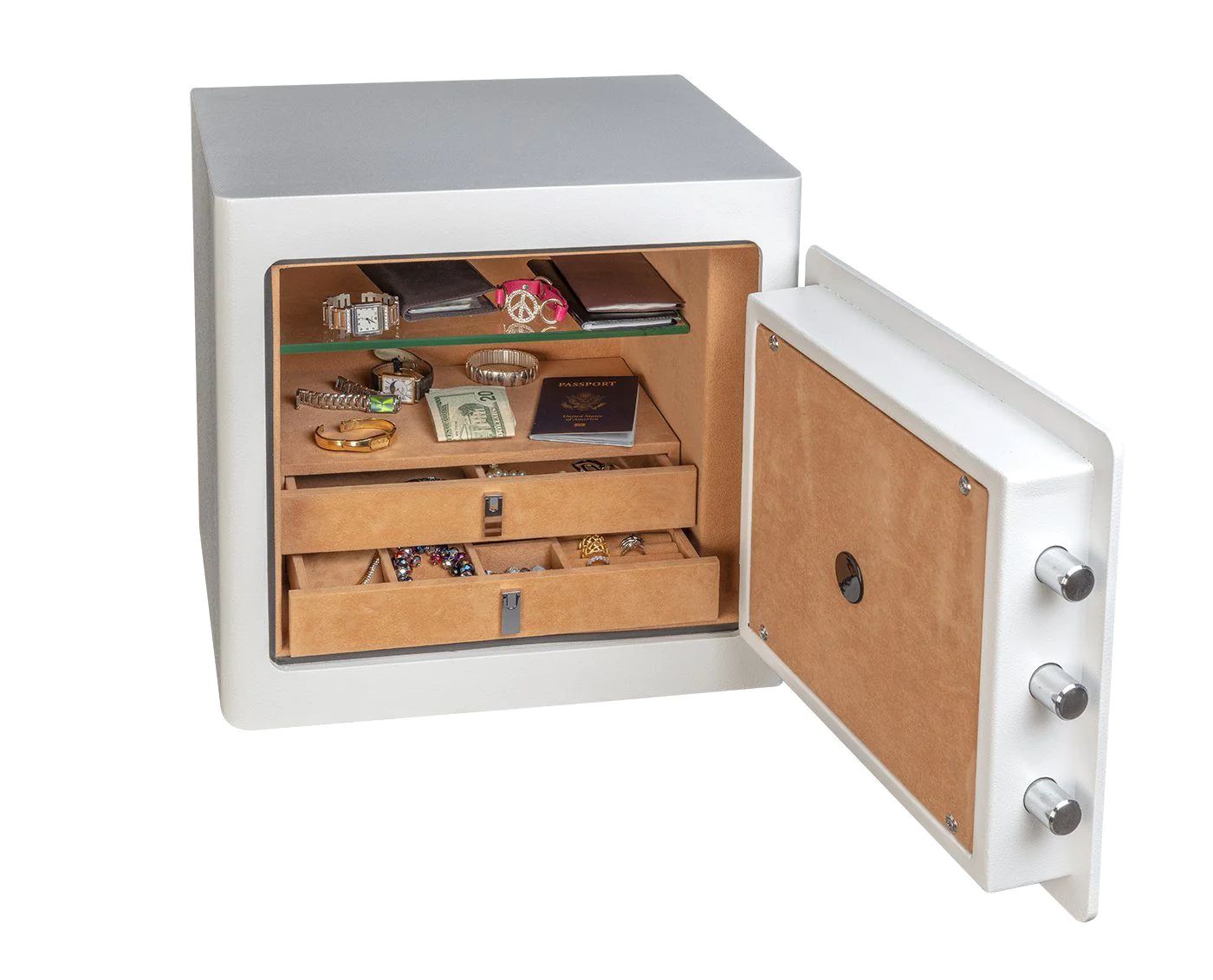

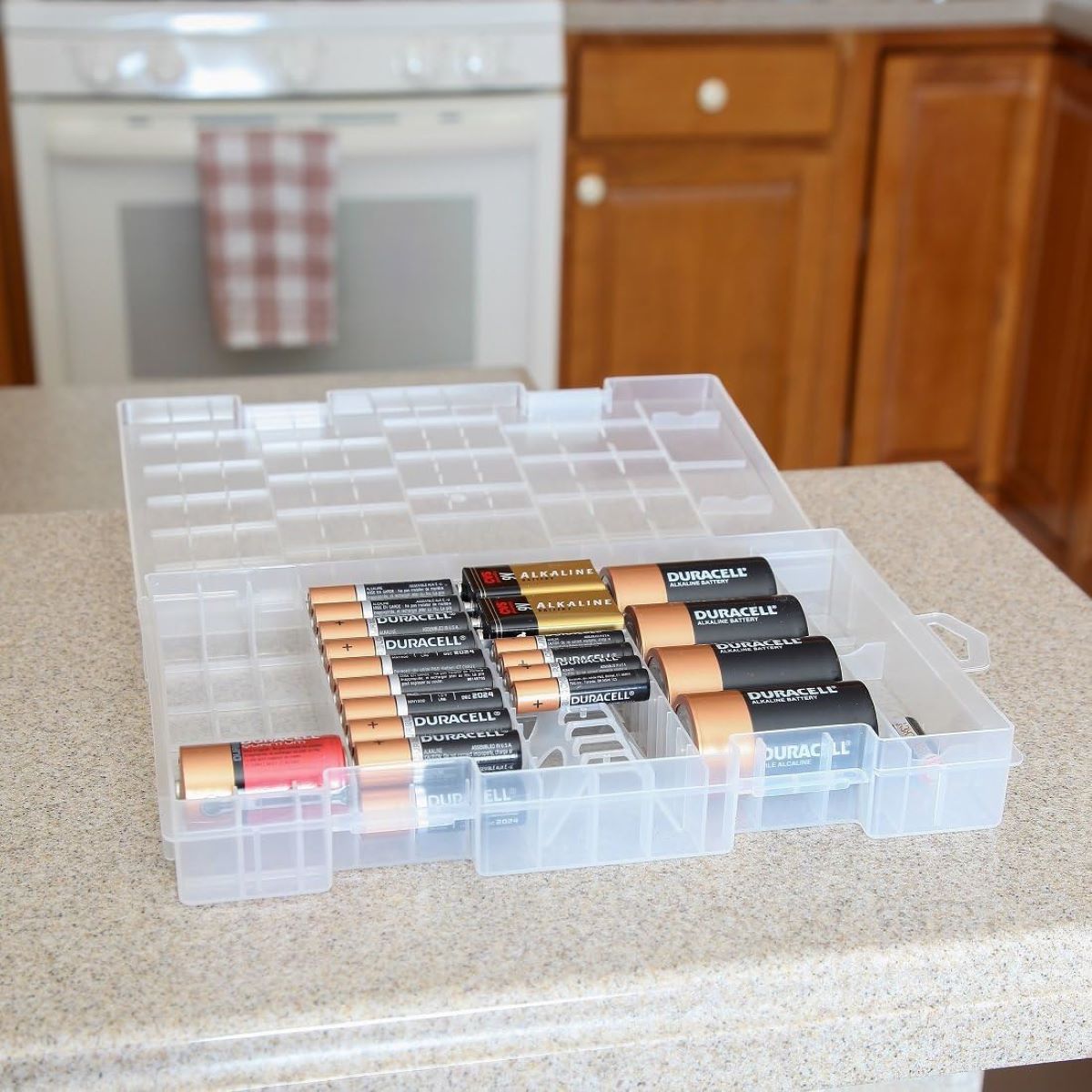



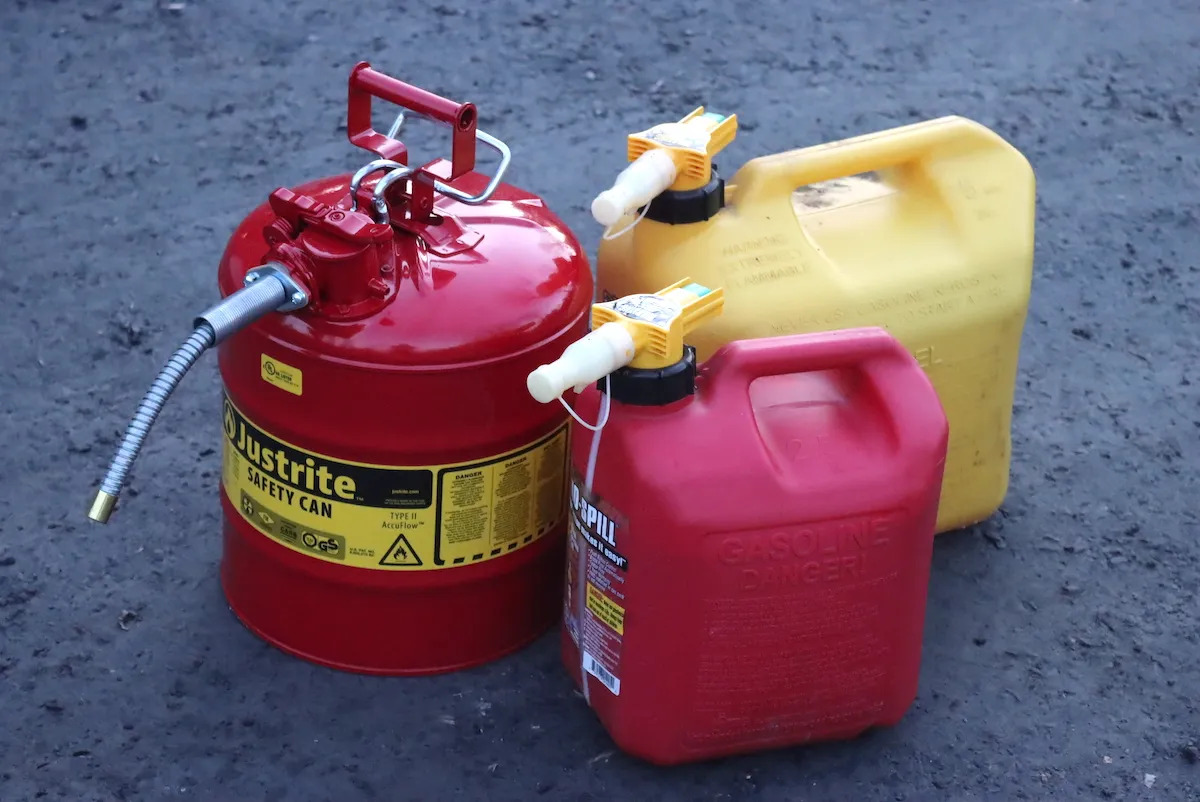



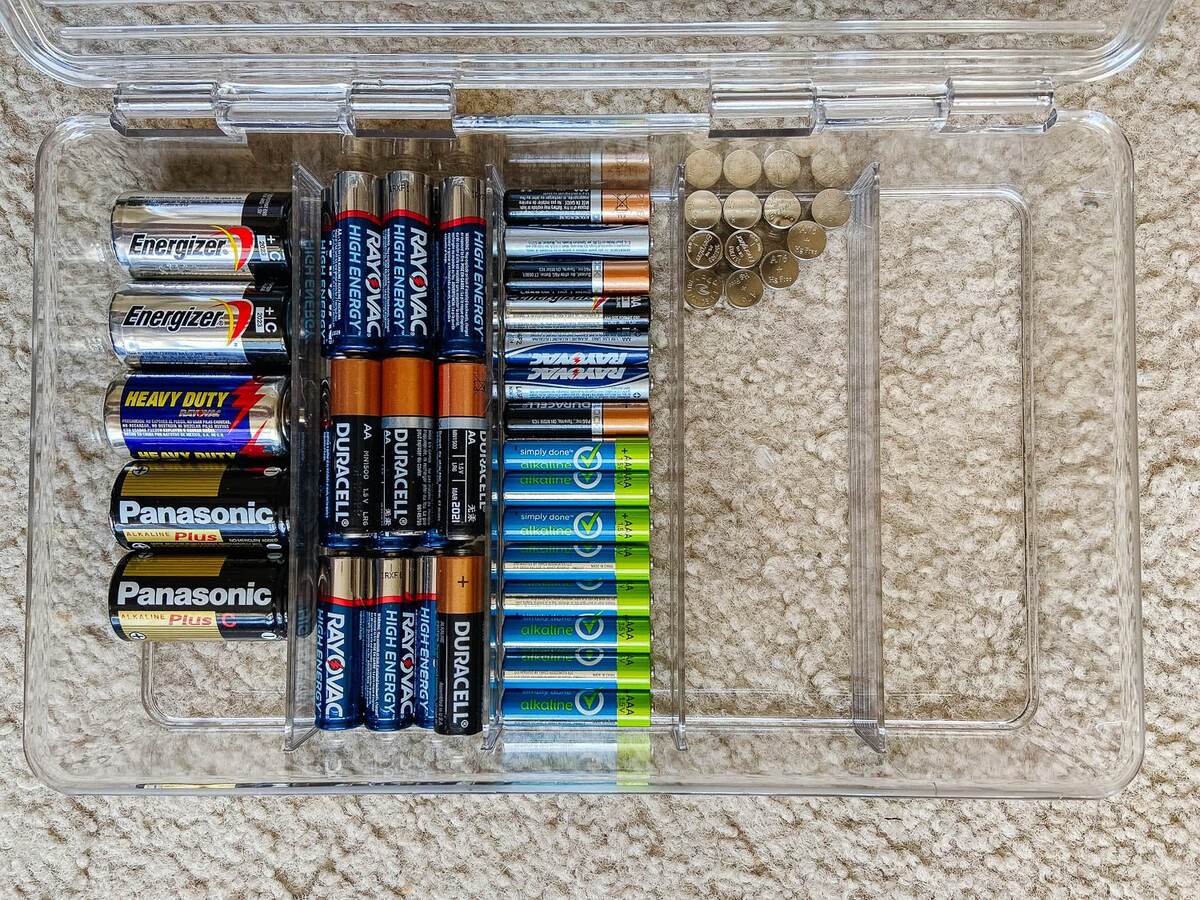
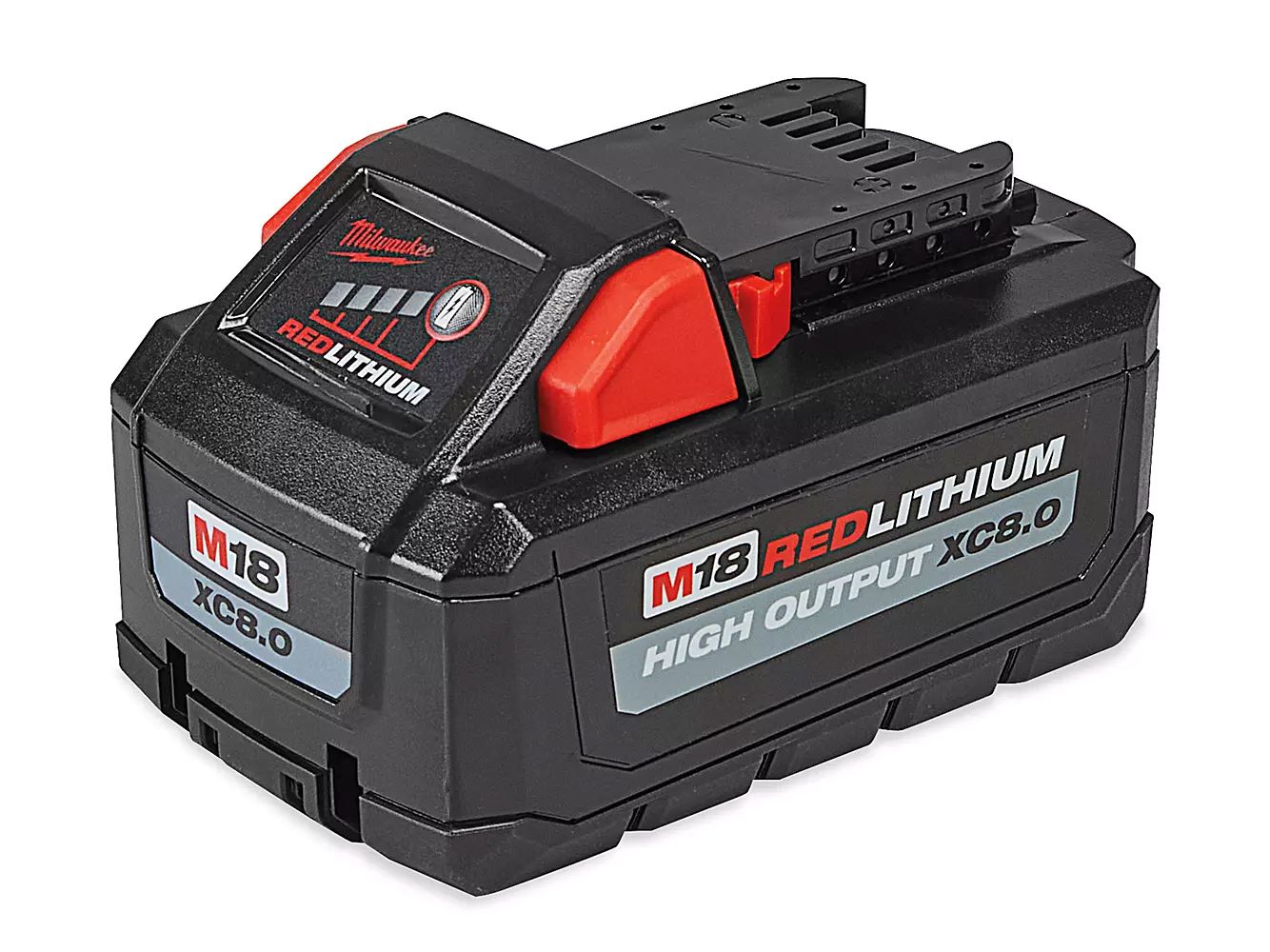

0 thoughts on “How To Store Batteries Safely”